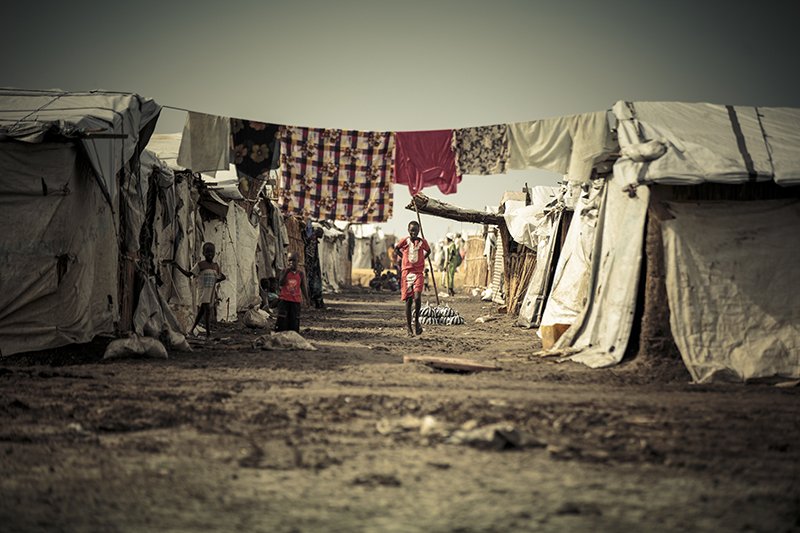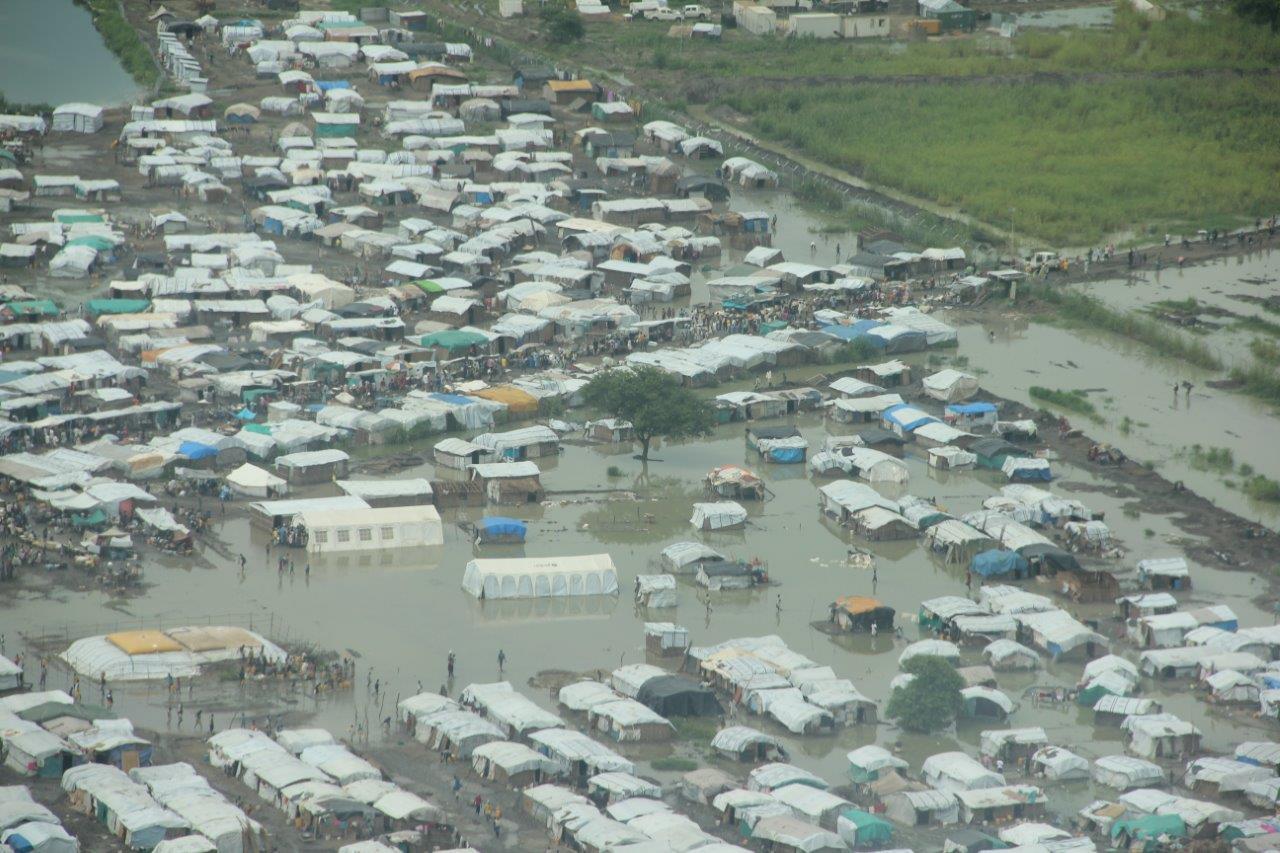Seven months in South Sudan gets a first-time fieldworker from Zimbabwe to see how the principles of MSF come to life.

In August 2016, two weeks after Zimbabwean Allen Magugu embarked on his first Doctors Without Borders (MSF) assignment to South Sudan, the 34-year old water and sanitation specialist found himself on a small plane headed towards Leer county in the central part of the country, where fighting had broken out.
Allen and four MSF colleagues, a medical coordinator, project coordinator, logistician and a medical team leader, were on call for reasons unrelated to the fresh conflict in Leer. With news of a suspected cholera outbreak in the area, MSF decided to send a team in to survey if the health situation required a new medical intervention.
“So, five of us got on an MSF flight, and when we landed, we had to walk 5km to the town – with all our medical supplies and a water quality testing kit. We found the town full of armed men.”
“There were armed teenagers with guns around while I checked the water points, boreholes and latrines during our assessment. This was the first time I was really in a conflict zone situation, but with just 3 hours to do the exploratory assignment, we had to finish fast.”
“A few hours after we left the town, we got news that a cattle raid had just erupted in the same place. We were lucky that we just missed it.”
‘People understand MSF's impartiality’
Despite fieldworkers operating in often volatile contexts, Allen says seeing MSF's principles in action gave him confidence to continue working.

“I tend to feel that people understand MSF’s principle of impartiality. MSF teams don’t ask which ethnic group a patient is from; what their religious beliefs or politics are – we just provide assistance where it’s required, based solely on needs. I think our remaining neutral in providing medical care has sort of opened access for MSF to be accepted by the different populations.”
For most of his seven month assignment, Allen was based in Bentiu, a place where MSF runs medical services in the largest camp for internally displaced people (IDPs) in South Sudan. Two months after he arrived there, an outbreak of cholera spread among the residents. Allen and his water and sanitation team had to act fast.
“Together with the logisticians we had to quickly set up with a cholera treatment centre (CTC),” he explains. “We had to pitch tents; set up treatment and isolation wards; make sure there adequate clean drinking water; enough latrines and ablution facilities for the patients; and ensure strict infection control measures. As Watsans (water and sanitation experts), we also had to ensure that those patients who died were buried safely.” The corpses of those who die from cholera release the contents of their bowels which then risks further contagion.
‘A reminder of who MSF is’
“Bentiu was my first experience with this kind of a situation. I had worked in a cholera response before, in Zimbabwe, but in this instance there were more deaths that happened – mostly among children as dehydration took its deadly toll.”
“I still have a picture in my mind of a young mother sitting on the bed after her baby had passed on. As Watsan, we would go into the ward to take the bodies to the morgue. When we went into this ward and I saw this mother. I could feel the pain she was going through. It was really sad.”
MSF’s hospital compound and staff residence is situated inside the IDP camp. MSF’s international fieldworkers mostly live in tents a short distance away from where patients live. The close interactions with local colleagues and proximity to MSF’s beneficiaries was a bonus for Allen, despite the sometimes challenging living conditions.
“For me it was an adventure and also a reminder of who MSF is. With MSF, the priority is always the patient. Living near our patients for seven months, I saw first-hand what life is like for people in a refugee camp. And I got to appreciate my life a lot more.”
Find out more about MSF's work in South Sudan.
